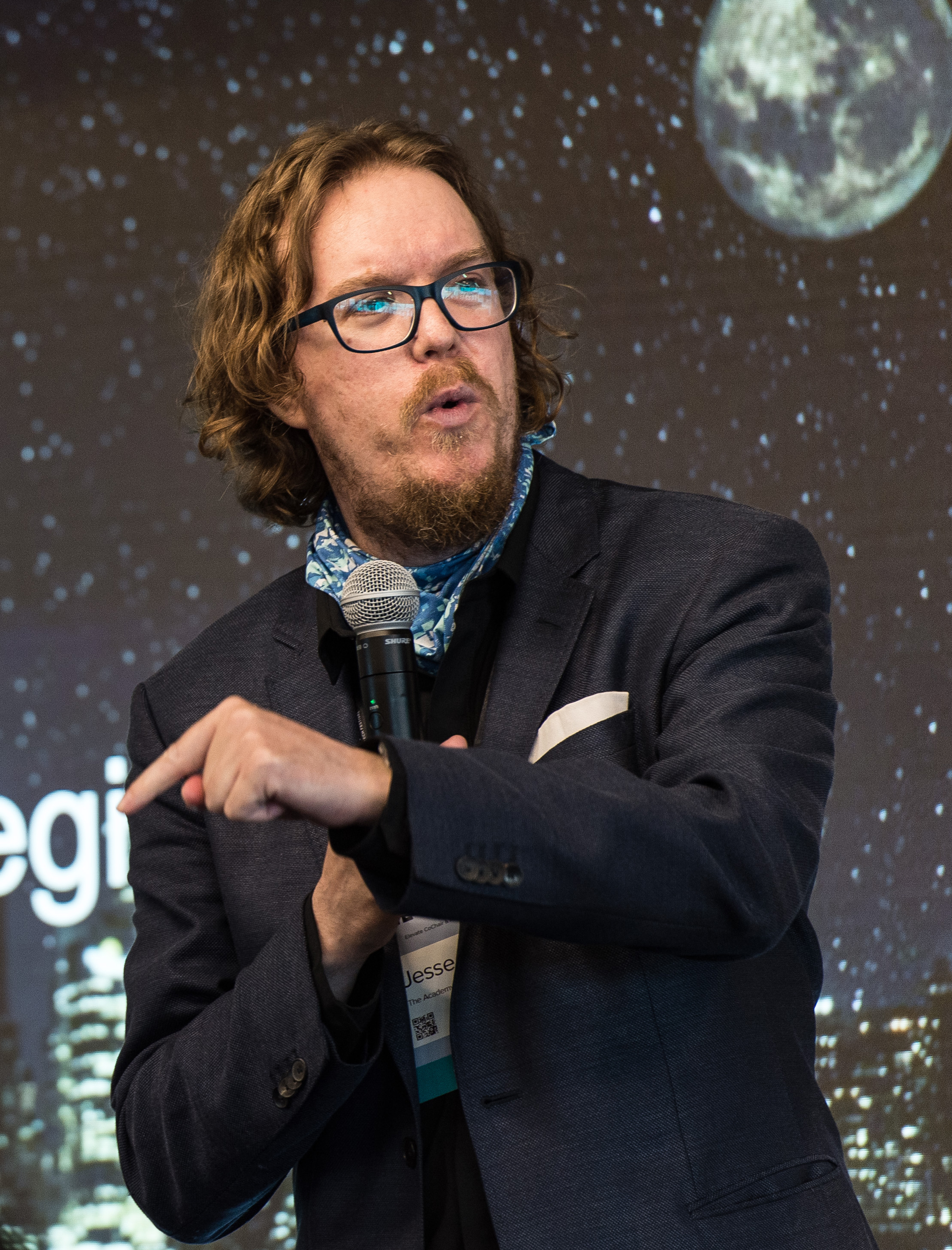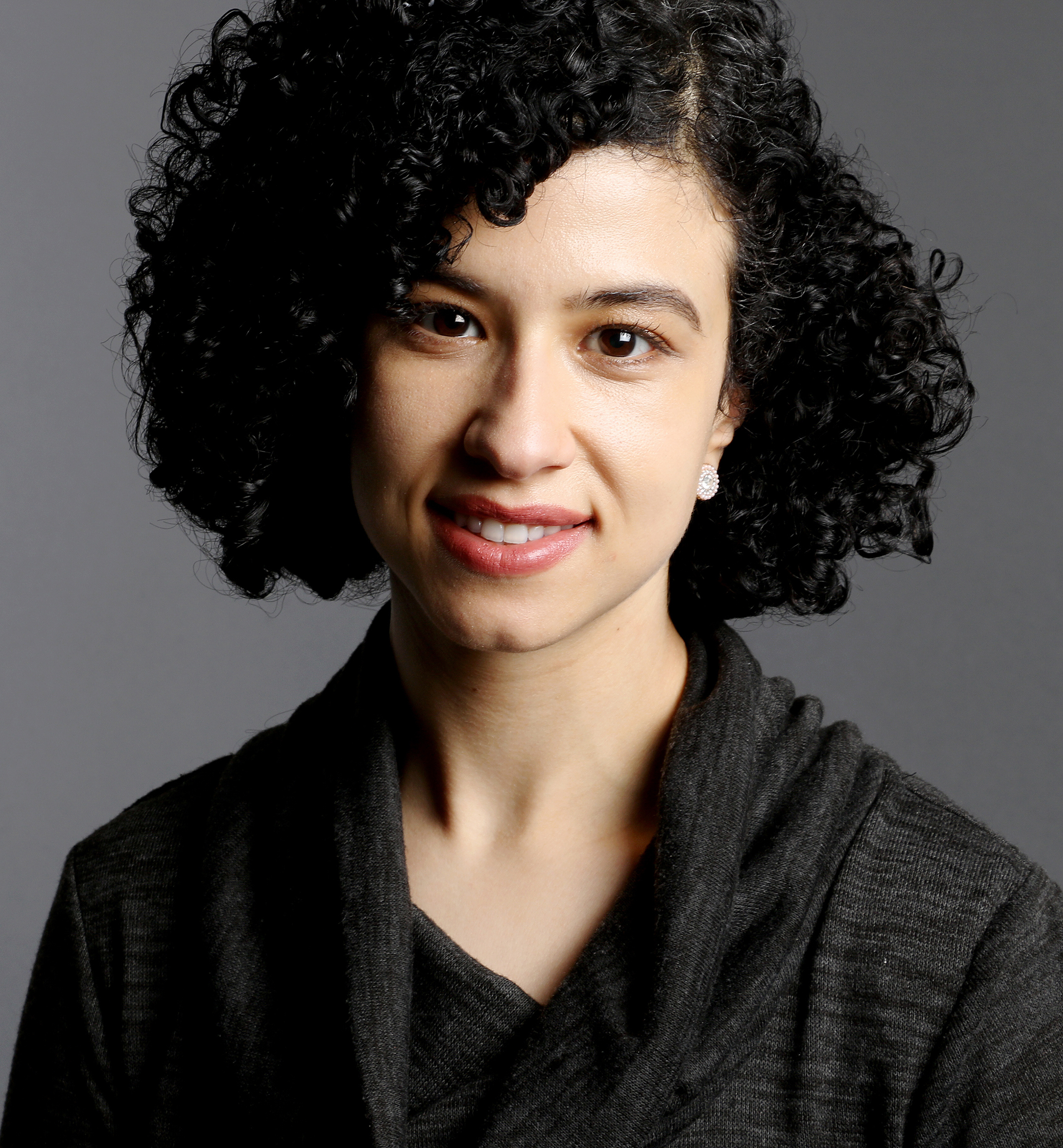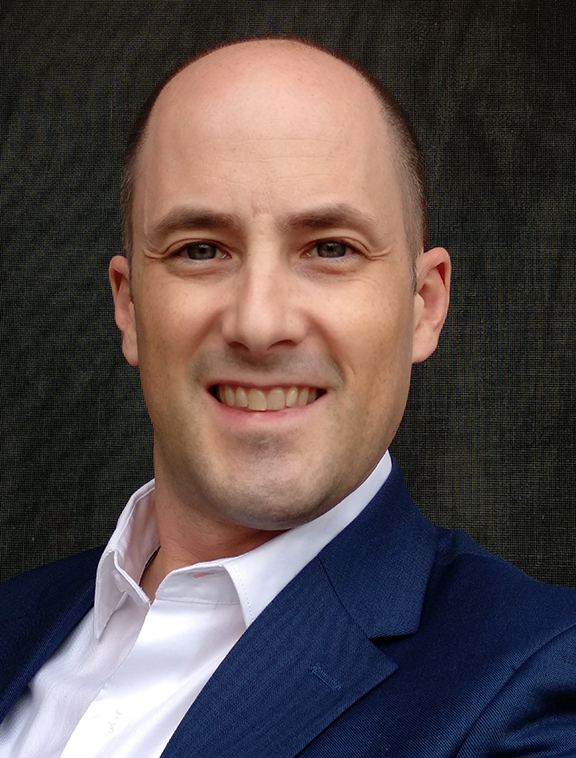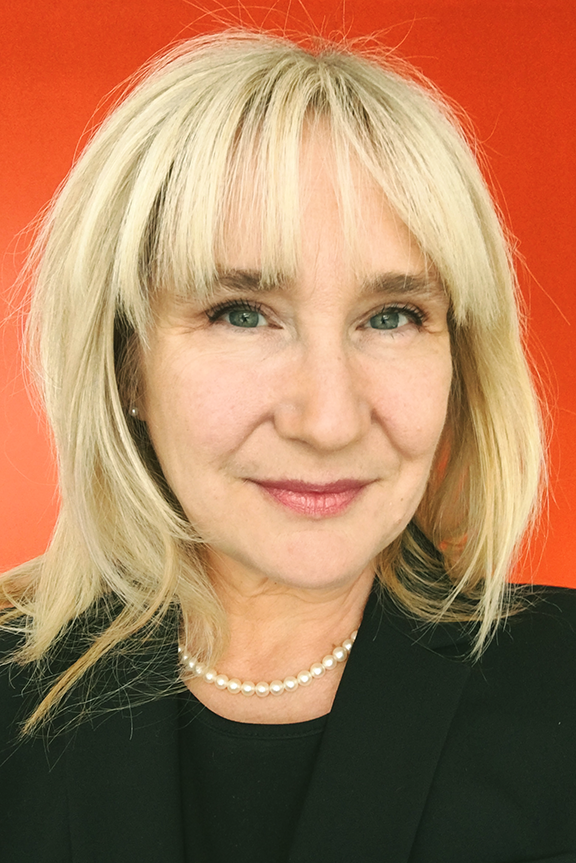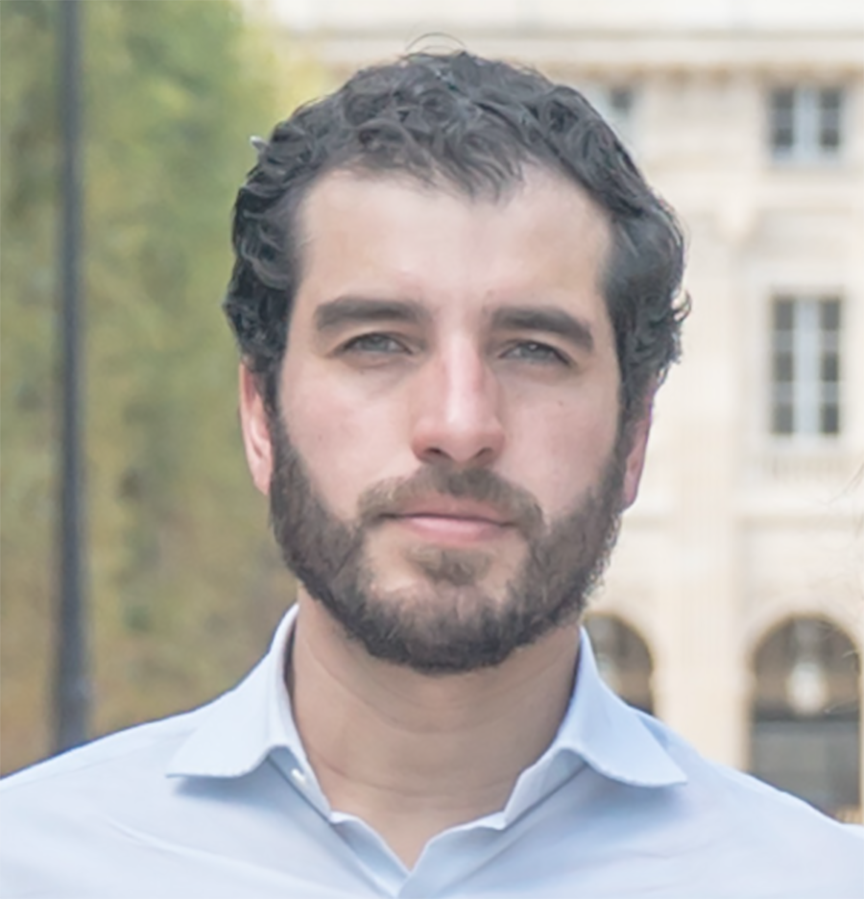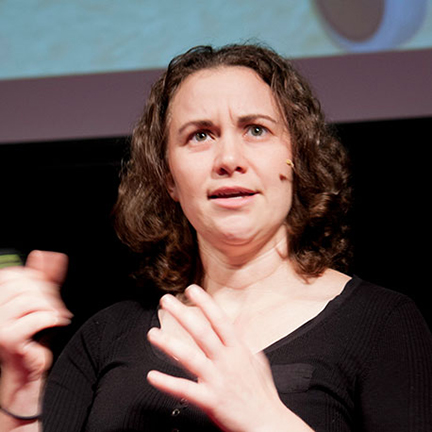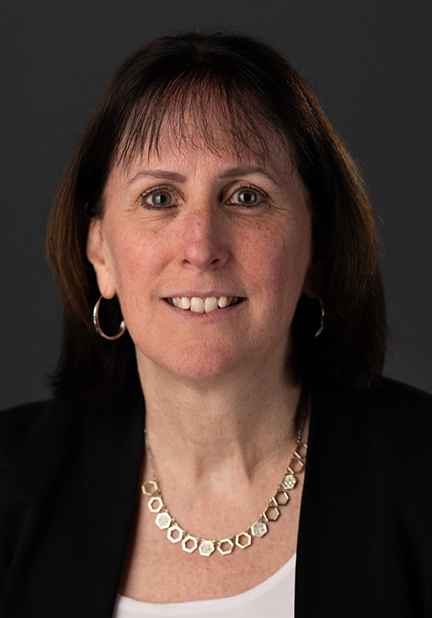|
|
Samuel Marleau Ouellet
Director, Innovation Hub, Innovation, Science and Economic Development (ISED)
Samuel Marleau Ouellet is the director of Innovation, Science and Economic Development’s AI Hub. His team is in charge of AI-related bilateral and multilateral initiatives, such as the Global Partnership on AI (GPAI) and supports the Government of Canada AI Advisory Council. Samuel is also project director of the COVID-19 Exposure Notification App (COVID Alert) Advisory Council Secretariat and interim board member of the International Centre of Expertise in Montréal on Artificial Intelligence. Prior to that at ISED, he was the manager of the trade policy unit and senior industry analyst. He was also a senior trade policy analyst at Global Affairs Canada. Samuel graduated with a Ph.D. in Business Administration from HEC Montreal and a M.A. in political philosophy from Ottawa University. His research interests are in internationalization strategies and cultural management. Before joining the Canadian federal public service, he served as a senior political advisor in the government of the province of Quebec.
|
|
|
Jim Provost
Lead Data Scientist, Lixar IT
Jim Provost is the Lead Data Scientist at Lixar. An accomplished speaker, teacher, and developer, Jim brings more than two decades of software development and machine learning experience and passion to his work.
|
|
|
Jesse Hirsh
Futurist, Researcher, Internet Strategist and Canada School of Public Service Digital Fellow
Jesse Hirsh is based out of Lanark County, Ontario, and has over 25
years experience as a technology researcher, ethicist, public speaker,
broadcaster, and futurist. He writes a daily newsletter called
Metaviews and works with organizations to help them use technology
strategically and responsibly. He has an MA from Ryerson University in
algorithmic media, and his current work focuses on the governance and
ethics of artificial intelligence, data protection, and privacy. Jesse
was a digital fellow with the Canada School of Public Service’s
Digital Academy and a member of the Advisory Council for the
Certificate in Machine Learning at York University’s School of
Continuing Studies. An avid (social) entrepreneur, Jesse operates the
Academy of the Impossible, a peer to peer lifelong learning network,
and Ottawa Valley Smart Farms, an agricultural technology company.
|
|
|
Dr. Sarah Shoker
Postdoctoral Fellow and Founder, Glassbox Inc.
Dr. Sarah Shoker is a postdoctoral fellow in political science at the University of Waterloo, where she uses empirical methods to research the social and policy impact of emerging technologies. She is a SSHRC 2020-2022 postdoctoral fellow, along with being the winning beneficiary for the 2019-2020 University of Waterloo Trailblazer Postdoctoral Fellowship.
She is the founder of Glassbox, a social impact firm that trains stakeholders in government and the tech sector to identify the social impact of AI systems. Her work is highly requested by government policymakers and garnered an invitation from Canada’s head of state, the Governor General Julie Payette, to participate in a delegation to Lithuania and Estonia. Dr. Shoker was invited into the Government of Canada’s Advisory Council on Artificial Intelligence as a member of the Public Awareness Working Group. Her past work also includes a commission by Global Affairs Canada to write a report on the gendered effects of digital information communication technologies (ICTs) in the context of international security. Her report will be used to help mainstream gender into the Government of Canada’s national cybersecurity policy. Dr. Shoker has been the keynote speaker at the Data Exploitation Conference hosted by Public Safety Canada, where she had the opportunity to speak about algorithmic fairness and ethics to FiveEyes partner agencies. And whether she is speaking on panels sponsored by the Campaign to Stop Killer Robots, to think tanks like the Centre for International Governance Innovation, or with United Nations member states, she always strives to use her research to bridge the gap between stakeholders who often have very different ideas about AI’s role in society.
Most recently, Dr. Shoker’s book on gender, technology, and war was published in October 2020 by Palgrave MacMillan under the title Military-Age Males in U.S Counterinsurgency and Drone Warfare. You can follow her on Twitter @SarahShoker.
|
|
|
Benoit Deshaies
Acting Director, Data and Artificial Intelligence, Office of the Chief Information Officer, Treasury Board of Canada Secretariat
Benoit studied computer science at Carleton University in Ottawa. He is acting Director of Data and Artificial Intelligence at the Treasury Board of Canada Secretariat (TBS). He directs the development of the Directive on Automated Decision-Making and the Algorithmic Impact Assessment (AIA). These policy tools ensure that Automated Decision Systems are deployed in a manner that reduces risks to Canadians and federal institutions, and lead to more efficient, accurate, consistent, and interpretable decisions made pursuant to Canadian law.
|
|
|
Valentine Goddard
Lawyer; Founder and Executive Director, AI Impact Alliance
"Lawyer, mediator, interarts curator and artist, Valentine Goddard is the founder and executive director of AI Impact Alliance, an independent non-profit organization operating globally, whose mission is to facilitate an ethical and responsible implementation of artificial intelligence. It produces the annual conference AI on a Social Mission and the Art Impact AI workshops both resulting in inclusive AI policy recommendations.
She is a member of the United Nations Expert Groups on The Role of Public Institutions in the Transformative Impact of New Technologies, and on a “Socially just transition towards sustainable development: The role of digital technologies on social development and well-being of all”. Ms. Goddard sits on several committees related to the ethical and social impact of AI, contributing to public policy recommendations related to the ethical and normative framework of AI, while being regularly invited to speak at international conferences. She is a board member of the Montreal Museum of Fine Arts.
In her multidisciplinary and applied approach to the ethics of AI, she places special emphasis on human dignity, having initiated throughout her career cultural and social mediation projects for human rights education. Her recent work is focused on how the arts and cultural sectors can foster renewed and diverse perspectives of our digital futures, support the development of informed and legitimate AI Policies, and shape AI’s development and governance."
|
|
|
Sandy Kyriakatos
Chief Data Officer, Canada Border Services Agency
Sandy Kyriakatos Joined the Strategic Policy Branch on Monday, December 2, 2019 as the new Chief Data Officer, responsible for Data Analytics, Information Sharing and Access to Information and Privacy.
Sandy joined CDO from Employment and Social Development Canada (ESDC), where in July 2016 she was appointed as the first Chief Data Officer in the GC. While implementing the Data Strategy Sandy spent the last three years maturing the data science capacity, data sharing, and data management at ESDC while championing a broad culture change around data. Prior to joining ESDC, she held a variety of positions in the private and public sector related to Data Analytics, Data Governance, Business Intelligence (BI) and Information Technology. She began her career in technical and advisory roles to and went on to lead organizational change in Analytics and Data. Her deep expertise across functional roles, industry verticals, and capabilities, brings unique insight into new role.
|
|
|
Mauko Quiroga
Policy & Engagement Officer (aka. gov. whisperer) @ beta.gouv.fr, Government of France
Mauko Quiroga is a Policy & Engagement Officer (aka. gov. whisperer) helping government deliver better digital services. He's a core member of French Prime Minister Services' beta.gouv.fr and Etalab. As a Government-as-a-Platform practitioner, he has contributed to services such as France's National Access Point for transport data and Assemblée nationale's LexImpact. He also contributes to OpenFisca, under the patronage of the Agence nationale de la cohésion des territoires, to help improve the effectiveness and efficiency of rule-making processes, achieve better policy outcomes and transform public service delivery.
|
|
|
Pia Andrews
Director General, Digital Experience and Client Data Workstream, Employment and Social Development Canada
Pia Andrews is an open government and data ninja who has been working in making the world a better place for 20 years. She currently works within the (public sector) machine to transform public services through greater transparency, democratic engagement, citizen-centric design, open data, emerging technologies and real, pragmatic actual innovation in the public sector and beyond. She believes that tech culture has a huge role to play in achieving better policy planning, outcomes, public engagement and a better public service all round. She is also trying to do her part in establishing greater public benefit from publicly funded data, software and research. Pia was recognised in 2018 and 2019 as one of the global top 20 most Influential in Digital Government and was awarded as one of the Top 100 Most Influential Women in Australia for 2014.
Pia is currently the Digital Lead and Special Advisor for the Benefits Delivery Modernization program at Service Canada (ESDC) in Ottawa, Canada. There she is helping design and deliver a holistic and modern digital channel for the Canadian Government to deliver a delightful, dignified, user-centric, responsive and integrated digital journey that motivates and empowers people to help themselves.
|
|
|
Julie Leese
Chief Digital Officer, Transport Canada
Julie Leese became Transport Canada’s first Chief Digital Officer in January 2019
and is leading the department’s Transformation journey, including the move to
digital.
Julie started her career in the public service 35 years ago in the field of geomatics
with the Department of National Defence. She also worked with various
departments such as Public Works, Agriculture Canada, Treasury Board Secretariat
and Correctional Services Canada. Julie joined Transport Canada in 2016 as the
Chief Information Officer (CIO), successfully modernizing the department’s IM/IT
program to better enable employees and the delivery of the department’s
programs and services.
In addition to her work at Transport Canada, Julie is also very active in the
Government of Canada’s CIO community and is a member of the CIO Association of
Canada. She has also established the CIO-X-Change that brings together Government of
Canada CIO's to collaborate, exchange success stories and best practices and to drive
digital transformation.
|
|
|
Erick Galinkin
Researcher, Montreal AI Ethics Institute; Principal Artificial Intelligence Researcher, Rapid7
Erick Galinkin is a hacker and mathematician specializing in theory of machine learning and applying artificial intelligence to cybersecurity problems. His research at the Montreal AI Ethics Institute focuses on using principles from modern software deployment to enhance the security and ethics of machine learning systems.
|
|
|



